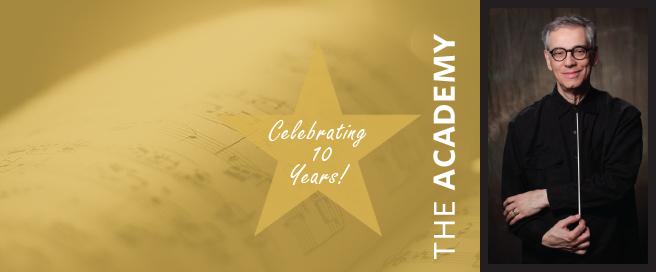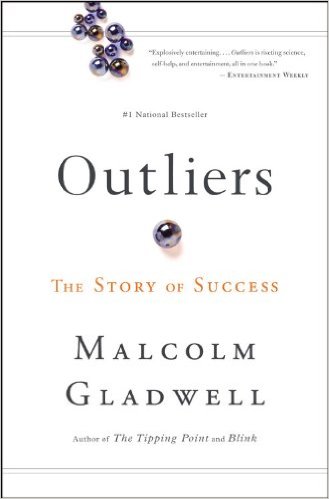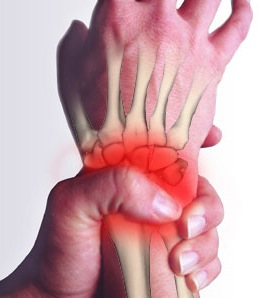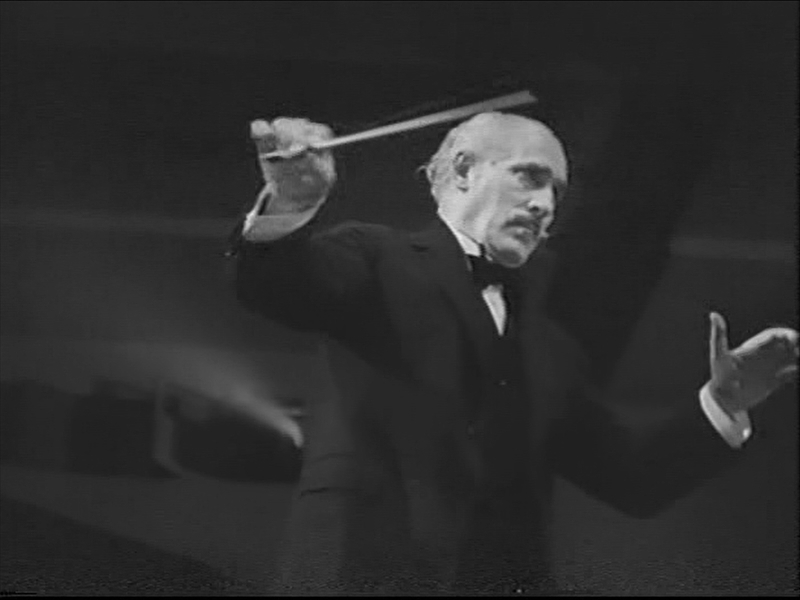Training the Next Generation of Classical Musicians

February 4th, 2016
A conversation with MIC Director of Marketing & Communications, Erin Fusco and Jim Setapen, Director of the Music Institute of Chicago's Academy
The Academy celebrates its tenth anniversary season with performances at Nichols Concert Hall. Learn more >>
Just like training for an Olympic athlete, there are huge financial, emotional and time commitments involved in developing a first-rate classical musician. It’s not for the faint of heart. Can you describe a little more about what is involved.
Jim Setapen: Music students who have talent and want to become professional performers face daunting challenges. They must find a teacher who can develop their ability correctly and sensitively. They must practice many hours each day. Malcolm Gladwell's 10,000  hours to master a subject is certainly apropos here. They must have very fine instruments as they mature, or they risk not being able to hear and produce the refined and beautiful sounds of a great artist. They must learn music theory and music history, be exposed to other young musicians in large and small groups, and have other mentors and teachers besides their primary instrumental teacher. They must also face the world of the competitions, where they need to succeed to be noticed, and to be able to deal psychologically with the natural sense of rivalry that develops among their friends and peers. Even after a thorough and first class music education, they will sooner or later realize that only a small percentage of talented students can make a living at their craft, and only a minuscule percentage will become well known. Indeed, this is not for the faint of heart, or really for any young person who can envision herself as spending her life doing ANYTHING else.
hours to master a subject is certainly apropos here. They must have very fine instruments as they mature, or they risk not being able to hear and produce the refined and beautiful sounds of a great artist. They must learn music theory and music history, be exposed to other young musicians in large and small groups, and have other mentors and teachers besides their primary instrumental teacher. They must also face the world of the competitions, where they need to succeed to be noticed, and to be able to deal psychologically with the natural sense of rivalry that develops among their friends and peers. Even after a thorough and first class music education, they will sooner or later realize that only a small percentage of talented students can make a living at their craft, and only a minuscule percentage will become well known. Indeed, this is not for the faint of heart, or really for any young person who can envision herself as spending her life doing ANYTHING else.
What do think of the hugely popular TV shows like “America’s Got Talent,” “the Voice,” or “American Idol”? How do they positively or negatively influence the wider population’s perception of music, talent and the possibility of success?
 Well, such shows certainly foster the notion among the public that music is a competition, and an often cruel one at that. They also demonstrate that not every person with the gift of a beautiful voice is going to be a great singer. The entire world of musician's agents or managers comes into play in determining who has a career and who doesn't. And I believe these shows tell the public that only the cream of the cream rise to the very top, and that you have to push yourself or you will not be noticed.
Well, such shows certainly foster the notion among the public that music is a competition, and an often cruel one at that. They also demonstrate that not every person with the gift of a beautiful voice is going to be a great singer. The entire world of musician's agents or managers comes into play in determining who has a career and who doesn't. And I believe these shows tell the public that only the cream of the cream rise to the very top, and that you have to push yourself or you will not be noticed.
My husband, a professional musician and teacher was recently at a doctor’s appointment and the nurse asked him what he did for a living. After his response, she said she was, “learning the guitar and getting really serious about it. She didn’t want to waste her time with lessons, but rather, was watching YouTube videos to teach herself on a focused fast-track.” What misperceptions do you think are out there regarding how best to learn and perfect playing an instrument.
The nurse is under the delusion that most people don't need a private teacher to enable them to reach their potential, and to develop proper technique on their voice or instrument. While there is the odd  exception of the self-taught musician, almost every performer needs the trained eye and ear of a professional teacher to help them understand the technique of what they are trying to do. Without technique, no performer can express anything with their playing, or move anyone except their mother.
exception of the self-taught musician, almost every performer needs the trained eye and ear of a professional teacher to help them understand the technique of what they are trying to do. Without technique, no performer can express anything with their playing, or move anyone except their mother.
Not unlike sports, there can be the possibility of serious inquiry when training and working professionally as a musician. What does the Academy do to help serious students prevent injury due to repetitive stress, etc.? What are three helpful practice tips you’ve learned through your years of experience?
 The Academy brings in a physical therapist every year to talk to students about avoiding injury when they play their instrument. The students have seen firsthand their friends with arms in a cast or a splint, or bandages around their wrists. The first point an adolescent needs to realize is that they are not invincible. They can injure themselves as easily as an older person. Playing, and even just holding an instrument, can put tension on muscles and cause enough pain to force someone to have to stop. The second point I would advise is for students to begin each day with stretches, to keep the muscles loose and limber. Good teachers can notice where there is tension in the way the student is playing and show them how to relax the muscles when they play. Finally, it bears repeating that everyone needs to get enough sleep. Without this we open up ourselves to increased risk for injuries of all types.
The Academy brings in a physical therapist every year to talk to students about avoiding injury when they play their instrument. The students have seen firsthand their friends with arms in a cast or a splint, or bandages around their wrists. The first point an adolescent needs to realize is that they are not invincible. They can injure themselves as easily as an older person. Playing, and even just holding an instrument, can put tension on muscles and cause enough pain to force someone to have to stop. The second point I would advise is for students to begin each day with stretches, to keep the muscles loose and limber. Good teachers can notice where there is tension in the way the student is playing and show them how to relax the muscles when they play. Finally, it bears repeating that everyone needs to get enough sleep. Without this we open up ourselves to increased risk for injuries of all types.
What drew you to classical music and how did you make the decision that you wanted to conduct rather than perform?
What drew me to classical music was a realization that I had talent as a performer, and that it gave me a real sense of pleasure and accomplishment to perform, either as a soloist or in a group. And the music itself spoke to me even at an early age. (Neither of my parents was a musician, or even particularly interested in classical music.) I know I loved works like the William Tell Overture and the Nutcracker when I was a boy, and gradually this lead to me finding other  classical music that said different things to me. It is a whole grand world that I am still discovering more about. What lead me to conducting was seeing, in the tenth grade, a video of the great maestro Arturo Toscanini. I had never seen anyone concentrate so intently in my life! He was hypnotic - you couldn't not watch him. The intensity, excitement, and eloquence of his persona were totally captivating. I was young and impressionable, and I said to myself - "That's what I want to do."
classical music that said different things to me. It is a whole grand world that I am still discovering more about. What lead me to conducting was seeing, in the tenth grade, a video of the great maestro Arturo Toscanini. I had never seen anyone concentrate so intently in my life! He was hypnotic - you couldn't not watch him. The intensity, excitement, and eloquence of his persona were totally captivating. I was young and impressionable, and I said to myself - "That's what I want to do."
